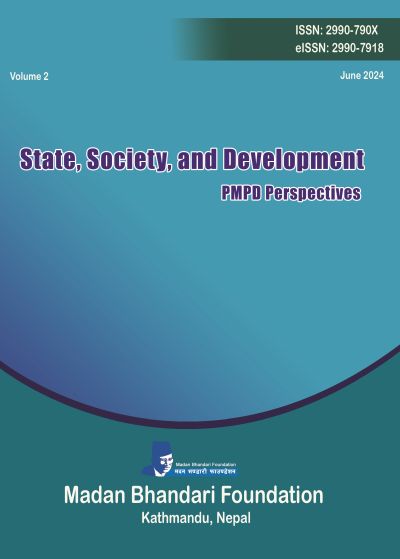Women’s Agency and Social Change in Nepal: A Marxist Perspective
DOI:
https://doi.org/10.3126/ssd.v2i01.67231Keywords:
Women’s agency, Social change, Marxist perspective, Gender equality, EmpowermentAbstract
The Constitution of Nepal 2015 provides substantial opportunities for women’s empowerment through its provisions for their rights and facilities. This legal framework represents a socio-political shift aimed at development, positioning women’s agency as a critical tool for social change. However, Nepal’s multi-ethnic, multi-religious, multi-lingual, and multi-cultural society presents diversity in women’s socio-economic status and agency across different communities. This paper examines women’s agency and social change in Nepal, drawing on the perspectives of Sen (1999), Bhandari (1993), and Marxist writings. It critically analyzes women’s agency, using data from literature and secondary source. Women’s agency, defined as the freedom to pursue goals and values, is essential for promoting social justice and well-being. Cooperative conflict and perceptions of entitlement within families emphasize the importance of women’s economic independence, education, and property rights. Women’s agency is linked to significant outcomes, including improved child survival, reduced fertility rate, and enhanced socio-economic roles. Nepal’s constitution supports women’s agency through its rights and provisions, contributing to declining gender inequality and improved health and educational outcomes.
Downloads
Downloads
Published
How to Cite
Issue
Section
License
Once published, an article in this Journal is not permitted to publish in other journals or similar publications without the permission of the Foundation. Contents and perspectives presented in the articles in the journal are solely of the authors.




